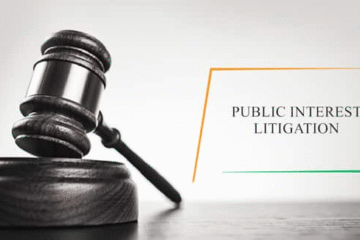
This article is written by Elham Mohammed Elamin of 6th Semester of University of Khartoum, an intern under Legal Vidhiya
Abstract:
Delegated legislation, also known as secondary or subordinate legislation, is a fundamental element of modern legal systems. This article explores the historical roots, various types, purposes, advantages, critiques, and control mechanisms of delegated legislation, providing a comprehensive understanding of its significance in contemporary law and governance.
Keywords: Delegated, legislation, subordinate legislation, statutory instruments, Bylaws, order in council, advantages of delegated legislation, challenges of delegated legislation.
Introduction:
The term “delegated legislation,” often known as secondary or subordinate legislation, is an essential component of modern legal systems. Delegation of legislative powers from the central legislature, such as a parliament or congress, to other authorities, agencies, or individuals is the essence of the matter. These entities are granted the authority to formulate rules, regulations, or laws within the framework established by primary or enabling legislation.
Delegated legislation is critical in dealing with the complexities and ever-changing nature of today’s society. It enables the efficient and flexible management of various aspects of governance, including public health and safety requirements as well as industry-specific standards.
This delegation of legislative powers, however, raises serious concerns regarding accountability, transparency, and the balance of power within a democracy. As a result, anyone interested in the functioning of legal systems, governance, and the relationship between legislatures and executive authority must understand the concept of delegated legislation. This notion is at the center of many legal and political debates, and exploring its various aspects is a crucial step towards comprehending the intricate workings of contemporary law and governance.
This article will provide a thorough examination of delegated legislation, delving into its historical foundations, the various types of regulations it encompasses, its purposes and advantages, as well as the critiques and challenges it faces. Furthermore, it will elucidate the mechanisms of control exercised by legislative bodies and the judiciary to ensure the responsible exercise of delegated legislative powers. Lastly, the article will present a global perspective on the phenomenon, showcasing its prevalence and adaptation across diverse legal systems worldwide.
Historical Background of Delegated Legislation:
Delegated legislation, which refers to the practice of delegating legislative authority to secondary bodies, has a long-standing presence in the historical development of legal systems. This historical backdrop reveals the gradual emergence and formalization of delegated legislative powers.
The historical roots of delegated legislation can be traced back to ancient forms of governance. In the Roman Empire, for example, provincial governors were vested with the authority to issue edicts and make decisions on behalf of the central authority. This delegation of legislative power was motivated by the necessity to ensure efficient and effective governance in a vast and diverse empire.
In medieval Europe, the concept of delegation was manifested through local governance structures. Rulers, nobles, and guilds were entrusted with specific powers to regulate trade, commerce, and various communal affairs. This decentralized approach to governance reflected the practical realities of the time, as central authorities frequently lacked the resources and expertise to directly regulate all aspects of local life.
The colonial and imperial eras further advanced the concept of delegated authority. Colonial administrators were often granted significant powers to supervise local governance, adjusting rules and regulations to meet the specific needs of the territories under their jurisdiction. This delegation of legislative power was essential for the effective administration of colonial empires, which were typically characterized by vast geographic distances and cultural diversity.
The modern era witnessed the increased establishment of delegated legislation, especially in democratic societies. Parliaments, congresses, and legislative bodies have started delegating powers to executive agencies, regulatory bodies, and local authorities. This delegation was motivated by several factors, including the growing complexity of modern governance, the necessity to ensure specialized expertise, and the aim to promote flexibility and responsiveness in the rule-making process.
Today, delegated legislation is an essential feature of legal systems worldwide. It enables governments to effectively regulate a wide range of complex and dynamic issues, such as environmental protection, financial markets, and public health. While the delegation of legislative power raises important concerns about accountability and democratic control, it remains an essential tool for modern governance.
Types of Delegated Legislation:
There are many different types of delegated legislation, but some of the most common types include:
- Statutory Instruments.
- Bylaws.
- Orders in Council.
1. Statutory Instruments:
The term “statutory instruments” is used for rules and regulations made by government ministers. Ministers and the government are given the authority to make regulations within their respective jurisdictions. So, each department in the government can make rules and regulations to deal with any matters under their jurisdiction. Statutory instruments can cover a wide range of topics, such as establishing speed limits, imposing taxes, and regulating health and safety.
Statutory instruments can be very short, a single one point, such implementing making the adjustment change to the minimum wage. However, other statutory instruments may be very long, containing detailed regulations that are too complex to include in an Act of Parliament.
In the UK, statutory instruments are a major method of law-making. Each year, over 3,000 statutory instruments are applied.
Example of statutory instruments: Chemicals (Hazard Information and Packaging for Supply) Regulations 2009, which were made by the Minister for Work and Pensions under the authority given by the European Communities Act 1972 and the Health and Safety at Work Act.
2. Bylaws:
In this form, laws can be made by local authorities to cover matters within their own area. Bylaws can also be made by public corporations and private companies for matters within their jurisdictions that involve the public. For example, the British Airports Authority and the railways can enforce rules and regulations about public behavior on their premises.
Order in Council:
In many countries, including the United Kingdom, Canada, Australia, and New Zealand, delegated legislation is used. In the UK, the Queen and the Privy Council have the authority to make laws. The Privy Council is comprised of the Prime Minister and other prominent members of the government. This form of delegated legislation gives the government the authority to make legislation without going through parliament.
They are used for a variety of purposes, such as appointing judges, making treaties, declaring war, implementing international agreements, and making changes to the law during times of emergency.
There are other types of delegated legislation, including rules that are made by courts or other bodies to regulate their own procedures. The High Court Rules, for instance, outline the necessary procedures to be adhered to in civil cases within the High Court. These rules also cover orders, notices, schemes, and determinate.
Purposes and Needs for Delegated Legislation:
Delegated legislation serves several important purposes and addresses specific needs in the context of governance:
1. Flexibility: Delegated legislation allows for the flexible adaptation and adjustment of laws to accommodate changing circumstances and emerging issues. It enables swift responses to new situations without the need for lengthy and complex legislative processes.
2. Expertise: Delegated legislation allows specialized bodies and experts to develop rules and regulations in their respective fields. This ensures that technical and complex matters are handled by individuals who possess the requisite knowledge and experience.
3. Efficiency: It expedites the process of making laws. Dealing with every detail of a law through the primary legislative process can be time-consuming. Delegated legislation streamlines the implementation of laws and saves valuable time.
4. Local Variations: Delegated legislation can address localized or regional variations in the application of laws. It allows for tailoring rules to meet the specific needs of different areas, ensuring that laws are more relevant and effective.
5. Delegated legislation is well-suited for specifying administrative details and procedures, such as licensing requirements, safety standards, and regulatory processes. This ensures that the operational aspects of laws are clear and comprehensive.
6. Regulatory Oversight: It provides a framework for regulatory oversight and compliance, offering a structured approach to ensure adherence to laws and regulations. Oversight mechanisms can be established to effectively monitor delegated legislation
7. Reduction of Legislative Burden: Delegated legislation alleviates the burden on the primary legislature by delegating specific matters to other authorities. This enables the central legislature to focus on more significant policy matters.
8. Emergency Measures: In situations requiring swift action, such as emergencies or national security concerns, delegated legislation allows for a rapid response and decision-making without the need for lengthy parliamentary processes.
9. Safeguards: Delegated legislation is often accompanied by checks and balances to prevent the misuse of delegated powers. These safeguards, such as judicial review, ensure that delegated authorities stay within the legal boundaries set by the enabling legislation.
Bradley and Ewing’s in his Constitutional & Administrative Law book , insights emphasize that delegated legislation fulfills various vital purposes. These purposes range from enhancing flexibility and efficiency to catering to specialized knowledge and addressing regional variations in the application of laws. It serves as an essential tool in modern governance, while also raising questions about the necessity of transparency and accountability in the exercise of legislative powers.
Advantages of delegated legislation:
1. Delegated legislation helps save time for the legislature by allowing them to focus on more important matters. This is because detailed and technical aspects of legislation can be handled by experts in the relevant field, rather than being debated extensively in parliament.
2. It provides flexibility in the law-making process. Delegated legislation allows for quick and efficient adjustments to be made to existing laws, without the need for lengthy parliamentary debates or amendments.
3. Expert opinion is often required when creating legislation, especially in complex areas such as healthcare or technology. Delegated legislation allows for specialists in these fields to contribute their expertise, ensuring that laws are well-informed and effective.
4. Parliament is not always in session, which can cause delays in addressing urgent matters or making necessary changes to existing laws. Delegated legislation provides a solution by allowing for continuous law-making even when parliament is not sitting.
5. Delegated legislation can be used as an experimental basis before implementing permanent laws. This allows policymakers to test new regulations and assess their impact before committing to them fully.
6. In times of emergency or crisis, delegated legislation can be quickly enacted to address immediate needs without waiting for parliamentary approval. This ensures that necessary measures can be implemented promptly to protect public safety or respond effectively to unforeseen circumstances.
7. Resolving legal disputes often requires consulting with relevant parties involved in the case. Delegated legislation facilitates this process by providing a mechanism for settling disputes through consultation and negotiation, rather than resorting solely to lengthy court proceedings.
Critiques and challenges of delegated legislation:
Criticism of delegated legislation can be multifaceted, encompassing concerns related to democratic accountability, transparency, and potential abuses of power. Here are some common criticisms:
1. Lack of Democratic Accountability: Critics argue that delegated legislation diminishes democratic accountability as unelected bodies or officials can make significant decisions that affect citizens’ lives without direct electoral accountability.
2. Excessive Delegation: Some critics assert that legislatures may delegate too much power to secondary authorities, leading to a weakening of the primary legislative body’s role in lawmaking.
3. Complexity and Lack of Public Awareness: Delegated legislation can be complex and difficult for the public to understand. Critics contend that this complexity reduces transparency and citizen awareness of the rules governing their behavior.
4. Potential for Abuse: There are concerns about the potential for abuse of delegated legislative powers, including the creation of overly burdensome regulations or regulations that may not align with public interests.
5. Limited Parliamentary Oversight: Some critics argue that parliamentary oversight of delegated legislation is often ineffective, with limited opportunities for meaningful scrutiny and challenge.
Control of delegated legislation:
Delegated legislation in many instancesis made by non-elected bodies with authority to make delegated legislation, it is very important that there should be some controls over this. Control could take several forms such as control exercise by the parliament and by courts. In addition there may sometimes be a public inquiry before a law is passed on especially sensitive matters, such as planning laws which may affect the environment.
Let’s delve deeper into these control mechanisms:
1. Control by Parliament:
- Legislative Oversight: As I mentioned, parliamentary or legislative oversight is a fundamental control mechanism. It involves the review and approval of delegated legislation by elected representatives. This ensures that regulations align with the intent of the enabling legislation and the will of the people.
- Scrutiny Committees: Many democracies have established parliamentary committees responsible for scrutinizing delegated legislation. These committees can examine the regulations for compliance with legal standards and broader public interest. Their recommendations can guide the legislative process.
2. Control by Courts:
- Judicial Review: Judicial review is a crucial check on delegated legislation. It empowers the judiciary to examine the legality and constitutionality of regulations. If a regulation is found to be ultra vires or in violation of the law, the courts can declare it void. This upholds the rule of law and ensures that regulations are consistent with the legal framework.
3. Public Participation:
- Consultation: Inclusive policymaking involves consulting stakeholders and the public when formulating delegated regulations. Public participation allows those who will be directly affected by the regulations to provide input, enhancing the quality and legitimacy of the rules.
- Public Inquiries: As I pointed out, in especially sensitive matters, such as environmental planning laws, conducting public inquiries before implementing regulations is valuable. These inquiries allow for a thorough assessment of the potential impacts on the environment and provide a platform for public input and scrutiny.
4. Transparency and Accessibility:
- Publication: Requiring the publication of delegated regulations is crucial. This transparency ensures that the public, legal professionals, and affected parties have easy access to the regulations, enabling them to understand their rights and responsibilities.
These control mechanisms collectively establish a system of accountability and oversight that prevents potential abuses of power and maintains the democratic principles of governance. They strike a balance between efficiency in lawmaking and the protection of individual rights and the public interest, ultimately contributing to a more responsible system of delegated legislation.
Global perspectives:
Delegated legislation, or its equivalent in various legal systems, is a common feature in many countries around the world. While the specific regulations, terminologies, and mechanisms may differ, the concept of granting authority to bodies other than the legislature to make detailed rules and regulations is prevalent. Here are some global perspectives on delegated legislation:
1. United States:
In the United States, delegated legislation is often referred to as “administrative regulations.” Federal agencies, under the authority granted by Congress, can create detailed rules and regulations to implement and enforce laws. This system is subject to judicial review.
2. United Kingdom:
The UK employs a robust system of statutory instruments, an essential form of delegated legislation. These are used to make detailed rules under an Act of Parliament. The UK Parliament’s Joint Committee on Statutory Instruments scrutinizes these instruments for compliance with enabling legislation.
3. European Union:
The EU uses delegated acts and implementing acts as part of its decision-making process. Delegated acts allow the European Commission to supplement or amend non-essential parts of EU legislative acts, while implementing acts are used to execute EU law.
4. Australia:
Australia’s legal system relies on delegated legislation, often called “regulations.” The Parliament’s Legislative Instruments Act 2003 provides a framework for controlling and reviewing such regulations.
5. India:
India has a well-established system of delegated legislation, known as “subordinate legislation.” Various government agencies are authorized by the Parliament to make detailed rules and regulations, subject to certain controls and judicial review.
Conclusion:
In conclusion, delegated legislation is a fundamental aspect of modern legal systems. It allows for the efficient and flexible management of various aspects of governance, addressing the complexities and ever-changing nature of contemporary society. This practice is rooted in historical precedents, dating back to ancient forms of governance and evolving over time to suit the needs of diverse and complex societies.
While delegated legislation serves crucial purposes, it is not without its challenges. Concerns regarding democratic accountability, transparency, and the balance of power within a democracy are valid. It is essential to have a robust system of controls in place to ensure that delegated legislation is accountable, transparent, and aligned with the broader public interest.
The control mechanisms discussed, such as parliamentary oversight, judicial review, public participation, and transparency, are vital in maintaining the integrity of delegated legislation. These mechanisms strike a balance between efficiency in lawmaking and the protection of individual rights and the public interest.
In a global context, delegated legislation is a widespread practice, with various countries adopting similar principles under different names. The common thread is the delegation of authority to make detailed regulations to bodies or agencies other than the legislature, highlighting its importance in addressing complex and dynamic issues in contemporary governance.
Understanding the concept of delegated legislation is crucial for anyone interested in the functioning of legal systems, governance, and the relationship between legislatures and executive authority. It remains a central element of many legal and political debates and plays a pivotal role in contemporary law and governance. As societies continue to evolve, the proper management of delegated legislation remains a critical consideration for the effective functioning of modern legal systems.
References:
- George Seddon & Sarah Taylor Delegated Legislation (Sweet & Maxwell 2007).
- John Smith, Local Governance in Medieval Europe: Understanding Delegated Authority (Cambridge University Press 2015).
- Mark Jones, Colonialism and the Development of Delegated Authority (Oxford University Press 2009).
- Alison L. Young, “Delegated Legislation: Historical Perspectives,” 76 Modern Law Review 531 (2013).
- A.W. Bradley & K. D. Ewing, Constitutional and Administrative Law (Oxford University Press, 2015).
- Craig, Administrative Law (4th ed.). Sweet & Maxwell, (1999).
- Hood, C., & Margetts, The Tools of Government in the Digital Age. Palgrave Macmillan, (2007).
- Martin, J., The English legal system (4th ed),(2005).




0 Comments